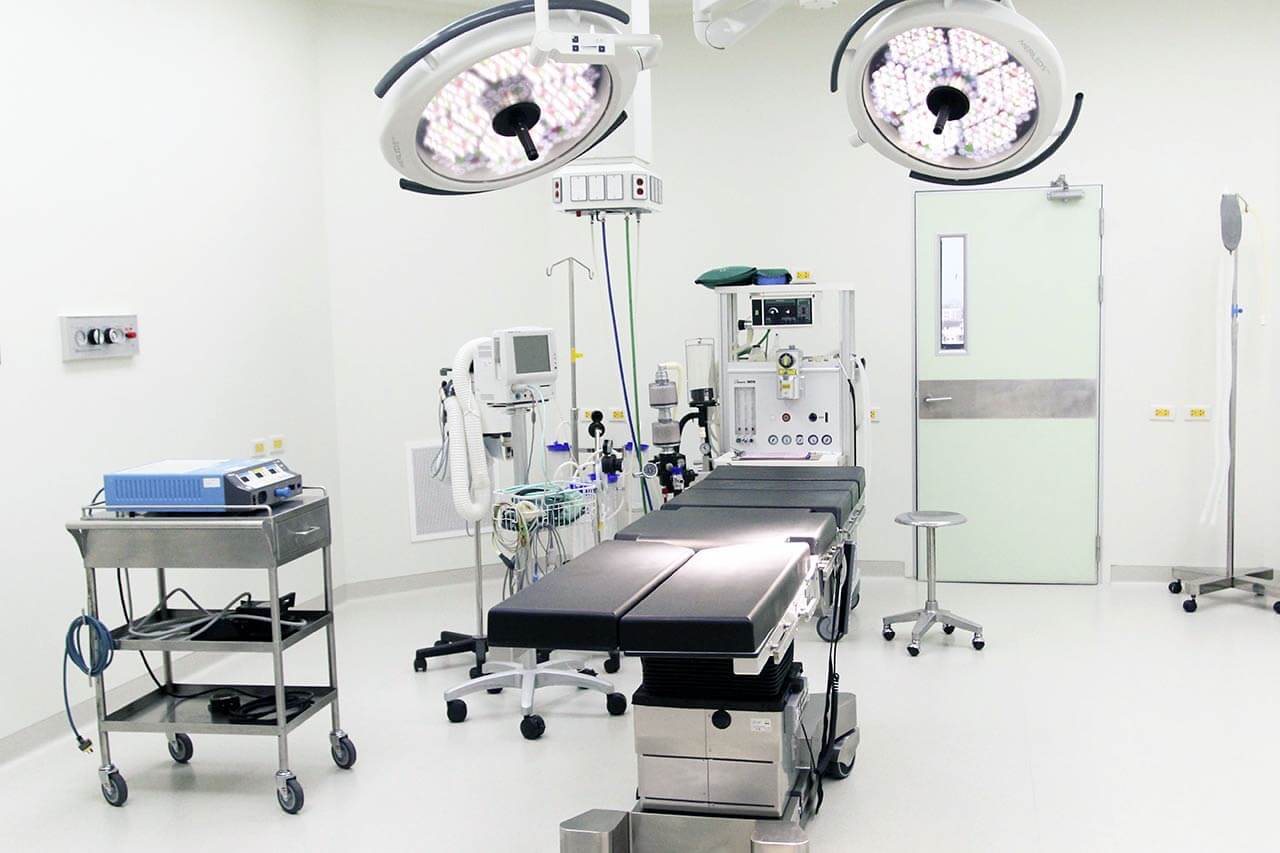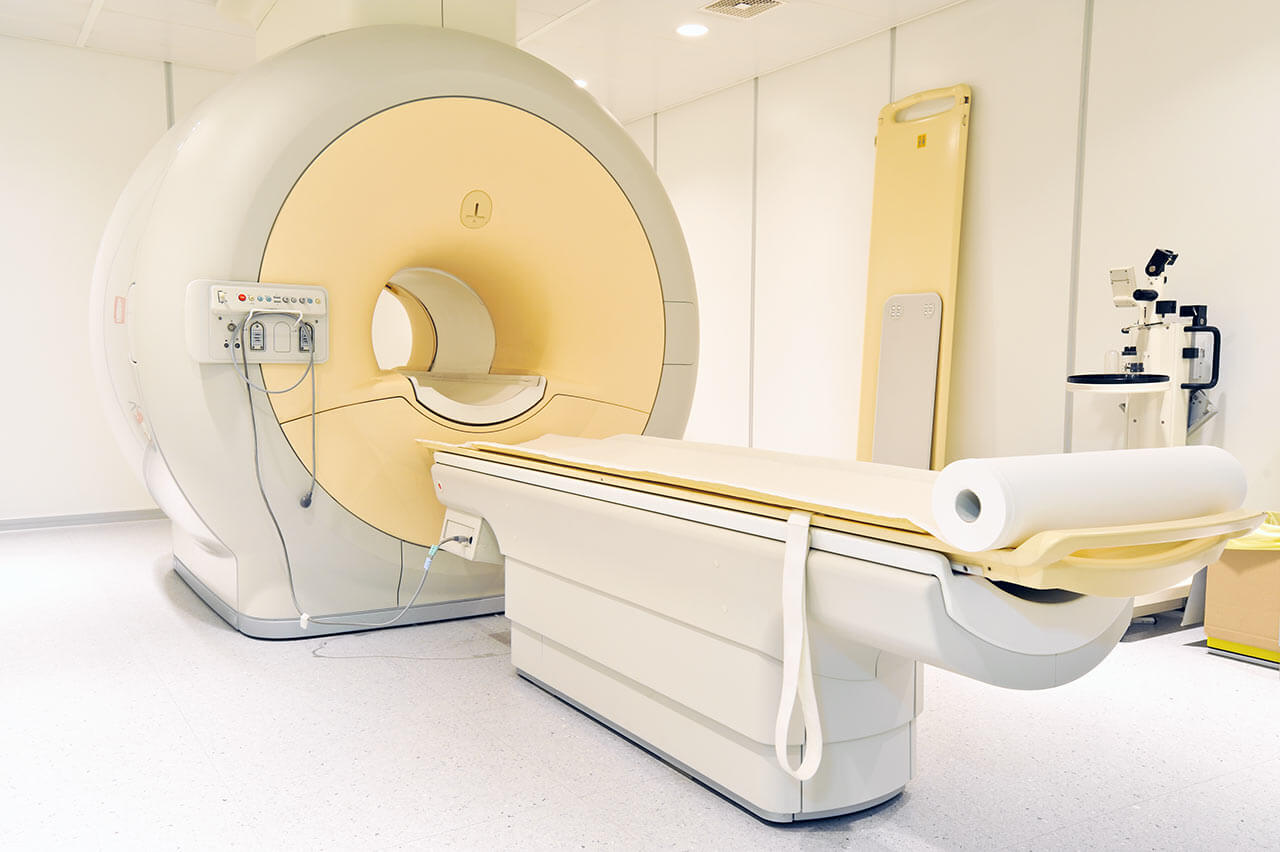
About the Department of Endocrinology, Diabetology and Angiology at Hospital Schwabing Munich
The Department of Endocrinology, Diabetology and Angiology at the Hospital Schwabing Munich provides the high-precision diagnostics and effective treatment of diseases of the thyroid gland, parathyroid glands, pituitary gland, pancreas, adrenal glands, as well as impaired synthesis of the female and male sex hormones, various types of diabetes mellitus. In addition, the department's competence includes the diagnostics and treatment of diseases of the arteries, veins and lymphatic vessels. The department is certified by the German Diabetes Society. The task of diabetologists is to prevent this dangerous disease and provide competent medical care to the patients who have already been diagnosed with it. When treating the patients with diabetes mellitus, great attention is paid to lifestyle modification, which helps effectively control the disease. The department's medical team annually provides treatment to more than 1,900 inpatients, as well as to more than 760 patients who undergo a course of therapy in a day hospital. The Chief Physician of the department is Prof. Dr. med. Robert Ritzel.
The clinical activities of the department's endocrinologists is focused on the detection and treatment of thyroid diseases. The specialists have successful experience in the treatment of benign and malignant thyroid pathologies. Depending on the severity of a clinical case, the treatment can take place on an outpatient basis, on an inpatient basis or in a day hospital. The medical facility offers the very latest therapeutic methods for the treatment of thyroid diseases of any severity, including Graves' disease, nodular goiter, de Quervain thyroiditis, endocrine ophthalmopathy, autoimmune polyendocrine syndrome, thyroid diseases during pregnancy, etc. Should surgical treatment be required, the qualified specialists will be involved in the therapeutic process. If the patient is diagnosed with thyroid cancer, he will receive an individually tailored course of treatment, which may include surgical resection of the malignancy, radioactive iodine therapy, radiation therapy and follow-up hormone replacement therapy.
An equally important focus of the department's medical team is the treatment of various types of diabetes mellitus and teaching patients a new way of life with this pathology. The department has been treating diabetes mellitus for more than 50 years, so the patients can count on the highest quality of therapy and, accordingly, excellent results. In addition to such classic treatments for diabetes mellitus as insulin therapy, diet therapy, diabetic foot syndrome therapy (the use of innovative dressings, vacuum therapy, laser therapy, etc.), the department also provides treatment with a so-called "intelligent" insulin pump. An insulin pump is an automatic miniature electronic device, which injects insulin subcutaneously through a catheter at a predetermined rate. The pump can be controlled manually or via a mobile application on a smartphone. The use of the "intelligent" insulin pump provides diabetic patients with the opportunity to constantly monitor blood glucose levels, prevent the progression of pathology and the development of severe complications. In addition, teaching of patients is an important part of the therapeutic process. The goal of the training courses is to provide the patients with information about the characteristics of a particular type of diabetes mellitus, therapeutic options, dietary restrictions, etc.The patients are also offered practical training sessions, during which they gain the skills they need to measure their blood glucose levels and use an insulin pump.
The department's service range is complemented by the diagnostics and treatment of diseases of the arteries, veins and lymphatic vessels. The department specializes in the treatment of deep vein thrombosis, traumatic vascular lesions, vascular malformations, rare inflammatory vascular diseases, thromboses in pregnant women, chronic venous insufficiency. As a rule, the vascular system is examined using color duplex scanning, capillary microscopy, functional tests and ultrasound-guided punctures. The treatment mostly involves the use of sparing techniques, for example, ultrasonic lysis, catheter-assisted stent implantation, etc. Occlusive peripheral arterial disease is treated in collaboration with the Department of Interventional Radiology.
The department's key clinical focuses include:
- Diagnostics and treatment of endocrine diseases
- Diagnostics and treatment of thyroid diseases
- Graves' disease
- Nodular goiter, including complicated one
- Intolerance to thyrostatic drugs
- De Quervain's thyroiditis
- Endocrine ophthalmopathy
- Autoimmune polyendocrine syndrome
- Thyroid diseases during pregnancy
- Thyroid diseases in patients on continuous hemodialysis
- Parathyroid diseases
- Pituitary diseases
- Pancreatic diseases
- Adrenal diseases
- Disorders of the synthesis of female and male sex hormones
- Diagnostics and treatment of thyroid diseases
- Diagnostics and treatment of diabetes mellitus
- Type 1 diabetes mellitus
- Type 2 diabetes mellitus
- Gestational diabetes mellitus
- Diabetes mellitus caused by pancreatitis or previous pancreatic surgery
- Diagnostics and treatment of chronic non-healing wounds
- Diabetic foot syndrome
- Ulcus cruris
- Bedsores
- Diagnostics and treatment of diseases of the arteries, veins and lymphatic vessels
- Deep vein thrombosis
- Traumatic vascular lesions
- Vascular malformations
- Rare inflammatory vascular diseases
- Thrombosis in pregnant women
- Chronic venous insufficiency
- Occlusive peripheral arterial disease
- Diagnostics and treatment of other diseases
Curriculum vitae
In January 2010, Prof. Dr. med. Robert Ritzel headed the Department of Endocrinology, Diabetology and Angiology at the Hospital Schwabing Munich. Since 2006, he has held the position of Senior Physician and Deputy Chief Physician in the Department of Endocrinology and Diabetology at the University Hospital Heidelberg. In addition, Prof. Ritzel worked at the University Hospital Bochum. His clinical activities at the university hospitals enabled him to gain invaluable experience.
Of particular clinical interest for Prof. Robert Ritzel is the treatment of endocrine disorders, diabetes mellitus, arterial hypertension and metabolic disorders. In addition, the specialist's attention is focused on the risk factors for the development of diabetes mellitus – excess body weight, diet, blood pressure, lipid metabolism, etc. The doctor took an active part in research projects both in Germany and in the USA.
Photo of the doctor: (с) München Klinik Schwabing




